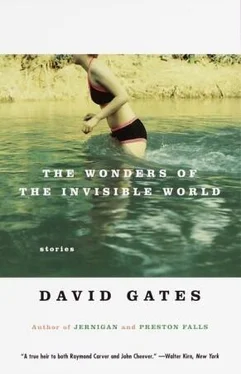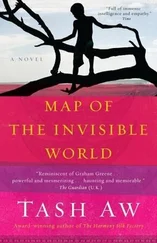Did I simply have bad character, or was I a strong young woman going after what she wanted and willing to pay the price? Though how strong were you really if you couldn’t, finally, get it? One thing I promised myself, I would never again let myself in for this kind of humiliation. When Tod finally dumped me, I did the one bit of bitchy damage I could: I said I’d always known the real romance was between him and Dalton. I hope he still hears me saying that in his head.
It was a mistake to have shown Tod’s picture to Steven. At the time, I thought I was doing it to leave nothing unshared. But actually it must’ve been to put him on notice: that once I had been desired by a beautiful blond boy. Tod’s beauty was a means of convincing Steven that I was beautiful. (How fucked up is that ?) I’m sure Steven thought it was more evidence of my bad taste, to have been attracted to the merely beautiful. As if it had never happened to him. Now, there’s another thing we were never going to do: marry a man who wasn’t on speaking terms with his own desires.
I woke up again at seven and came down and fixed myself a tray with coffee and a bowl of Count Chocula. Steven loves the Grand Union in Oneonta — when we lived in the city he refused to shop in supermarkets — and every week he selects another brand of sugared-out kiddie cereal. “I was raised on fucking puffed rice,” he said the first time he placed a box of Cap’n Crunch in the cart. “This is a quiet man’s rebellion.” I don’t generally eat this stuff, but I had to get something in my stomach immediately. I brought the tray up to my workroom and turned on the computer. Out the window, I saw a white cloud issuing from the tailpipe of Carl Porter’s empty truck, so I picked up the phone. “You didn’t need to ask, Mrs. Sturdivant,” he said. “I meant to do you first thing.” Lovely man.
Listening to his truck humming and rumbling as he plowed the driveway, I ate the cereal and looked over the pages I’d laid out yesterday, telling myself that one bowl of Count Chocula wasn’t so irresponsible; they probably spray the stuff with vitamins. And only then did it hit me what I’d done last night: got stinking drunk while four months pregnant. Four months: what did that mean in terms of how major a birth defect might be? Wouldn’t it be more major the earlier you did the bad thing? I pictured a bullet, fired at conception: deflect that bullet almost at the target and it would miss by only a little, but deflect it early on and it would veer off wide. Four months. That was less than halfway there. I slid from my chair to my knees and prayed, Dear God, since I did it without thinking, please don’t let it count. Just the kind of prayer God likes to hear. Oh, right, If it be Thy will. I listened down into my body to try to discern any damage, any change from yesterday. Nothing. Oh, God. Well, we just wouldn’t think about this. But what if Steven looked at the bottle? I remembered him saying, I want to make a baby with you. I know you must think I’ve said everything before to somebody else, but this is a first. A first. He actually said that.
The thing to do was to hop in the car and go buy a pint of Rémy to get the level back up — put anything else in there and Steven would instantly taste something wrong — then hide the empty. But it was twenty miles to Oneonta, the nearest liquor store classy enough to stock the stuff. And it was seven-thirty in the morning.
At nine-thirty I started down to make more coffee. Still another thing I wasn’t to do, drink more than a half cup a day, but I absolutely had to finish the last six pages this afternoon without fail, and I had nodded out staring at the screen. I was looking at this one page, trying to care whether or not the vertical picture should be moved to the right and the pullquote brought down to compensate, and then I seemed to be at a performance of Hamlet, I think it was — and I suppose it’s a rule with dreams that if you think it was, it was —and my dress was too tight on me and I wanted to go to the ladies’ room and let out the waist. All pretty obvious. But before going down the stairs I stopped and eased open the bedroom door with my fingertips. Steven, in pajamas, was clutching my pillow, his mouth gaping. His hair looked damp; he must’ve taken a shower before coming to bed. It made me sad that I’d never known him when his hair was all black. I tried to think what his life must be like — a first? — but I really couldn’t see that anything was so terrible. I’d never been able to take seriously enough the Central Tragedy, which was that he’d never become, I don’t know, Jackson Pollock or whoever he’d wanted to be when he was eighteen.
Back in my workroom, I drank the fresh coffee and stared at that page. This was a simple decision. Which I still couldn’t make. I got up again and went down the hall to Steven’s workroom. So cold when I opened the door: the window wide open. He’d finished another illustration. How could I have thought one of my little moods would slow the march of his work? Last night’s production was a peasant family standing by a cottage. The cover from The Forest Is Crying was sandwiched in my cookbook stand, and he’d spattered paint on the Plexiglas. So that was where he’d gotten the woman peasant’s colorful costume; the man peasant and the little boy he’d put in brown shirts and trousers and clumpy boots. There was something familiar about the landscape, too. Then I spotted the Edward Hopper book on the floor. Aha: the thatched-roof cottage was that Mobil station, and the peasant family stood in place of the round-headed gas pumps. He’d done it well, what else was new. I’d said my piece about this new phase when he showed me the first one, for which he’d used a Currier & Ives print of a man knife-fighting a rearing grizzly. “Oh, please,” he said. “This is an hommage. ” Learn a new word, Paula. Then, probably because he realized he was being a pompous ass, he went into one of his pompous-ass parodies. “Think of this bear,” he said, “not as a bear, but as Old Man Depression. The gallant mountain man? Yours truly.” He inclined his head. “And behind the tree here”—he pointed to a second man, who was aiming a gun at the bear—“Dr. Seibert and his magic bullet.” He’d only been taking the pills for a couple of days at this point. He gave his snorting laugh, the one that means I hate myself.
Even with this fresh cold air, I smelled cigarette smoke. In the wastebasket, under a crumpled page of a sketch pad, I found butts, ashes and burned-out matches. I counted the butts. Sixteen. So he was back at it with a vengeance. How had I not picked up the smell off him? Ah: wet hair.
Paula Wilson-Sturdivant, girl detective.
It’s one of my amusements up here. The other morning I was unpacking a box of PAPERS & MISCwhen I looked out the window and saw him in the backyard by the old oil drum where the people who’d lived here had burned their trash. Steven, who puts the caps from toothpaste tubes in with the number-two plastics to be recycled — I swear — was touching a match to a big sheet of paper and thrusting it from him as flames leaped up. “Just a particularly lousy piece of work,” he said when he came in. I said the obvious: if it had bothered him enough to burn it, it must’ve had something he could use. He asked if I was reverting to hippiedom, saying it in a way I was supposed to think was only kidding.
So when he left to go get the mail, I went out to the barrel. But he’d even smashed up the ashes.
• • •
Around one this afternoon, I heard Steven go downstairs. The upstairs bathroom is right over the kitchen, and there’s a grate in the floor for heat to come up. I tiptoed into the bathroom and knelt to watch. I could see a corner of the stove and most of the sink, where I’d put the filter basket with soiled filter and spent coffee grounds still in it. I saw him pick it up; his shoulders rose and fell, a martyr’s sigh.
Читать дальше












